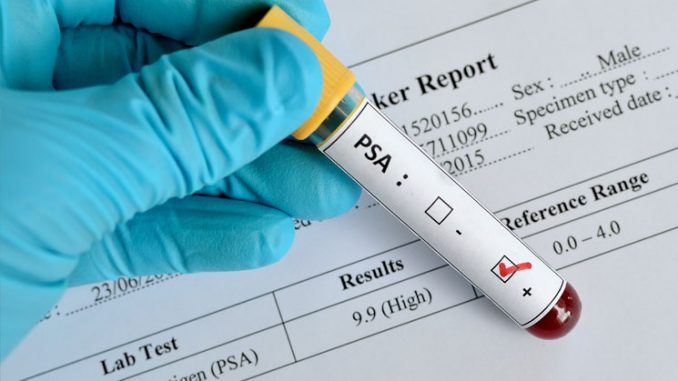
Prostate-specific antigen or PSA or PSA test or PSA level is a blood test (a blood test). It is commonly used to test prostate cancer and to treat this disease. PSA and prostate cancer are usually thought to go hand in hand, but this is not always the case. The PSA or PSA test is a microscopic test (complex) and the level of PSA needs to be evaluated very carefully before diagnosing prostate cancer. It would be better to do this evaluation with a urologist or PSA Urologist.
PSA Origins
PSA is an enzyme or element in the blood that makes your semen white and liquid and allows sexual intercourse. But in prostate disease and cancer, inflammation, or prostate cancer, PSA leaks into the blood and increases the level of blood.
General PSA Levels
There is no normal PSA level for an individual. This is a limitation. A level of less than 4 ng/ml is generally considered safe. However, many patients may also develop cancer below these levels. If you are under 55 years of age, if you have symptoms, levels up to 2.5 can also be an indication of evaluation. If you have a family history of prostate cancer, you still need to be investigated. PSA levels may increase in diseases other than prostate cancer. Inflammation, infection, recent sex, stress can increase PSA levels. In such a scenario, it is wise to repeat the levels from a good laboratory after consulting your urologist. If you are above 70 years old or suffer from a big headache, then a level above 4 may actually be normal for you. But, even if you have done a PSA test and your levels have risen, then consulting a urologist would be a prudent decision.
PSA Variants
Sometimes PSA levels may increase, but your biopsies are negative or you may not have any signs of cancer. Or on the other hand, your PSA levels are below 4, but urologist cancer can have a strong suspicion. In these circumstances, combining free PSA, percent free PSA and PrePRoPSA can help in making a decision.
PSA Screening
You have been advised for PSA screening, this may happen. This may be part of your insurance test or advised by your local physician.
PSA Screening A man who has no symptoms is healthy and has no family history is defined to have a PSA test in such a person. This is done with the assumption that early detection of prostate cancer, early treatment can prevent death. Science is unanimous in its condemnation of this flawed approach. It has never been proven that PSA screening prevents death or that early diagnosis increases life in men. PSA screening, on the other hand, maybe the cause of stress. Anxiety and unnecessary surgeries and procedures can push you towards financial difficulties.
Also Read – Should One Undergo Circumcision or Not? Read to know
I do not support PSA screening, but if you have been screened and are confused about your options now, please consult me for clarity. I am happy to expose your concerns.
What is a prostate-specific antigen test?
The PSA test is performed to perform prostate cancer screening. Screening is a test that tests the initial stages of a disease like cancer. At such times, these diseases can be treated. Health organizations such as the American Cancer Society and the Center of Disease Control and Prevention (CDC) have disagreed that PSAs should be screened for cancer screening. The reasons for this are:
Most prostate cancers grow very slowly. They grow so slowly that it takes decades for their symptoms to appear.
Treatment of very slow-growing prostate cancer is often unnecessary. Many men live healthy lives despite the disease. They don’t even know they have cancer. Its treatment can cause major side effects. These side effects may include erectile dysfunction (erectile dysfunction) and urinary incontinence (non-stop urination). Rapidly growing prostate cancers occur in very few cases. But in many cases, they can be dangerous. But PSA tests alone cannot differentiate between slow and fast-growing prostate cancer. Therefore, it is better to contact your doctor to get a PSA test done.
